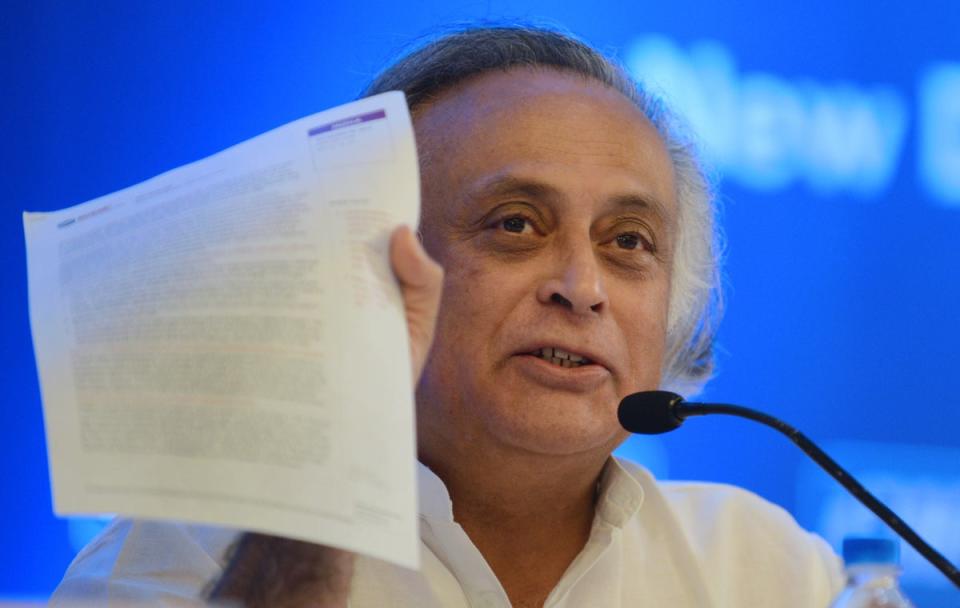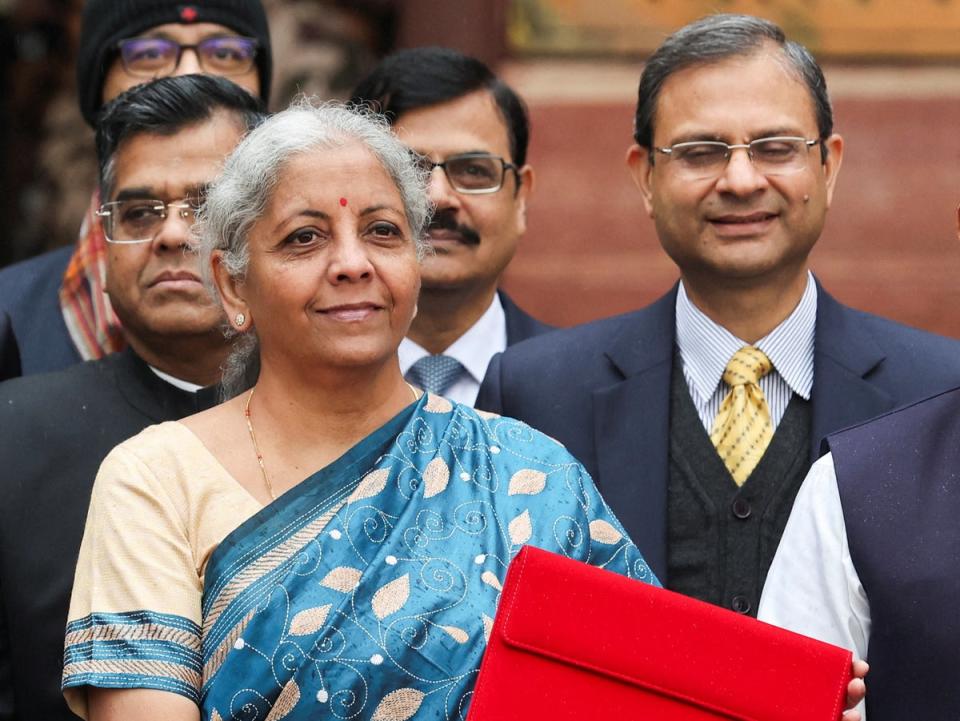Release of donor details rocks Indian politics just weeks before general election
The disclosure of political donors in India under a now-scrapped opaque electoral funding system has caused a furore in the country as it emerged that the top funders were previously being probed by federal investigating agencies.
Prime minister Narendra Modi’s governing Bharatiya Janata Party (BJP) is facing backlash from opposition politicians who are accusing the government of taking kickbacks from companies to fund the BJP’s electoral war chest. India‘s marathon general election is due to begin next month.
Mr Modi’s party, the biggest beneficiary by a large margin, received over Rs 60bn (£578m), half of all “electoral bonds” donated by individuals and companies since 2018.
The country’s second largest opposition party, the Trinamool Congress, was surprisingly second on the list with bonds worth Rs 16bn and the main opposition Congress came in third, with Rs 14bn.
The donors’ information was made public by the Election Commission following an order on Monday from the country’s Supreme Court, just days before a national election is due to be called. The political funding mechanism, called electoral bonds, was introduced by Mr Modi’s government during his first term in 2017. It allowed companies and individuals to donate unlimited amounts anonymously to political parties.
Last month, the Supreme Court banned electoral bonds calling them "unconstitutional" after opposition lawmakers and a civil society group challenged it on the grounds that it hindered the public’s right to know who had given money to political parties.
Under the system, a person or company could buy bonds from the government-owned State Bank of India and donate them to a political party, without the source of the funding being disclosed publicly.
The decision to scrap the funding system was seen as a setback for the BJP as well as other main political parties as it came ahead of the national election due to be held by May. The full election schedule is set to be announced on Saturday.

However, the data published on Thursday was incomplete as it did not provide information linking each donor to the party to which they donated. The top court directed SBI to release yet more data that would match each donation to the recipient.
According to the data released on Thursday, three of the top five purchasers of electoral bonds, including lottery company Future Gaming, infrastructure firm Megha Engineering and mining giant Vedanta, are companies facing investigations from the government’s financial crimes agency, the Enforcement Directorate, and the Income Tax Department.
Future Gaming and Hotels Pvt Ltd, run by businessman Santiago Martin, has been under investigation by the Enforcement Directorate (ED) since 2019 over allegations of money laundering. The lottery company bought electoral bonds worth Rs13.68bn (£129m) in 2020, months after the investigation began.
Mr Martin, also known as the “Lottery King” of India, has been India’s highest income tax payer for several years, according to the firm’s website.
The second largest donor to political parties is Megha Engineering and Infrastructures Ltd (MEIL) which bought electoral bonds worth Rs10bn (£94m) between 2019 and 2024. Its first bond came months after an Income Tax department raid in October 2019.
Megha has since bagged major government projects, including Rs 45bn (£426m) tunnelling contract for the prestigious Zojila project in Jammu & Kashmir and a Rs 5bn (£47m) order from the country’s defence ministry, reported Quint, citing press statements from the group.
Mining firm Vedanta came under the ED radar for its alleged involvement in a bribe-for-visa case involving a Chinese national in 2018. The metals and mining conglomerate, led by billionaire Anil Agarwal, is also under investigation for money laundering. A few months later, in April 2019, Vedanta Ltd purchased bonds worth over Rs 4bn (£37m).
Accusing the government of taking kickbacks, the Congress party said the data exposed the “corrupt tactics” of the BJP. “Over 1,300 companies and individuals have donated electoral bonds, including over Rs 6,000 crore (£567m) to the BJP since 2019," wrote Congress general secretary Jairam Ramesh on X as he alleged a pattern of “quid pro quo”.

He alleged that the data established a clear pattern of BJP “strong-arming” companies – first targetting them through investigations from the Enforcement Directorate (ED), Income Tax department and Central Bureau of Investigation and then demanding “donations for the company’s protection”.
Finance minister Nirmala Sitharaman dismissed the allegations as “assumptions”.
"I think you’ve based yourself on huge assumptions, that the money was given after the Enforcement Directorate raid happened," she said.
“What if the companies gave the money, and after that, we still went and knocked at their doors through the Enforcement Directorate? That’s an assumption that the Enforcement Directorate went and knocked at their doors, they wanted to save themselves, and therefore they came up with the funds," the finance minister said.
"The second assumption in that itself is, are you sure they gave it to the BJP? They probably gave it to the regional parties," she said.
In a separate post on X, Mr Ramesh urged the finance minister Nirmala Sitharaman to furnish complete information on “who donated how much to which political party”.
“It will put an end to the discussion once and for all,” he said.
The Independent has reached out to Future Gaming and Hotels Pvt Ltd, Megha Engineering and Infrastructures Ltd, and Vedanta for comment.


